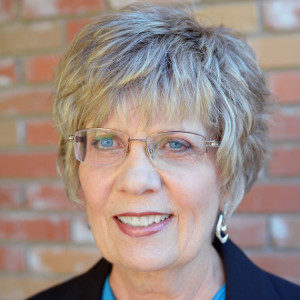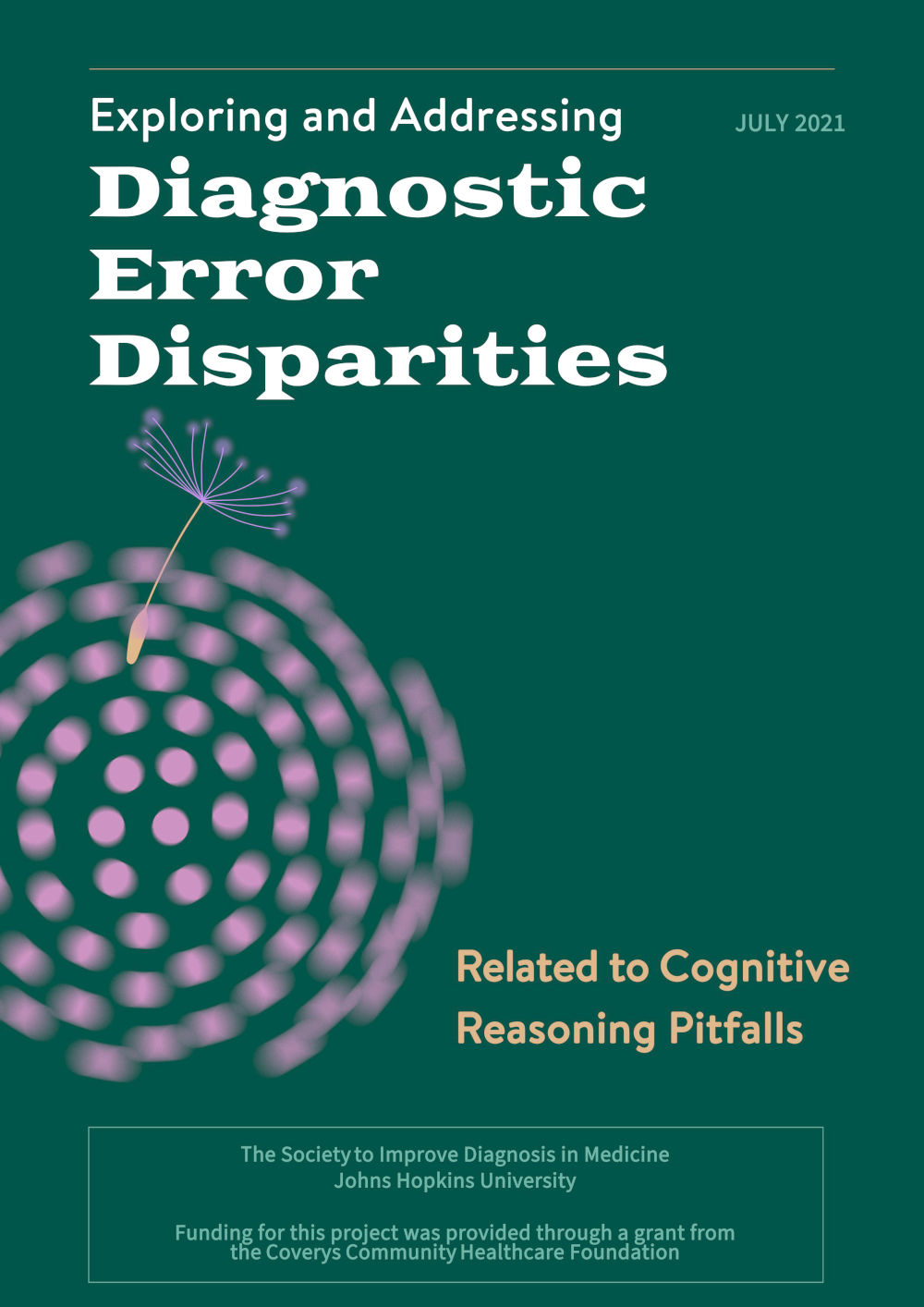About the Project
In 2018, The Coverys Community Health Foundation funded the Society to Improve Diagnosis in Medicine to conduct a project exploring the role that visible factors like race, ethnicity, age, and gender play in diagnostic error. In partnership with Johns Hopkins University, SIDM and a diverse team of patient and research advisors conducted the project and uncovered a collection of potential solutions areas to explore, as well as valuable methods for conducting multi-stakeholder research and quality improvement in a way that ensures all voices are heard and valued.
Meet the Team
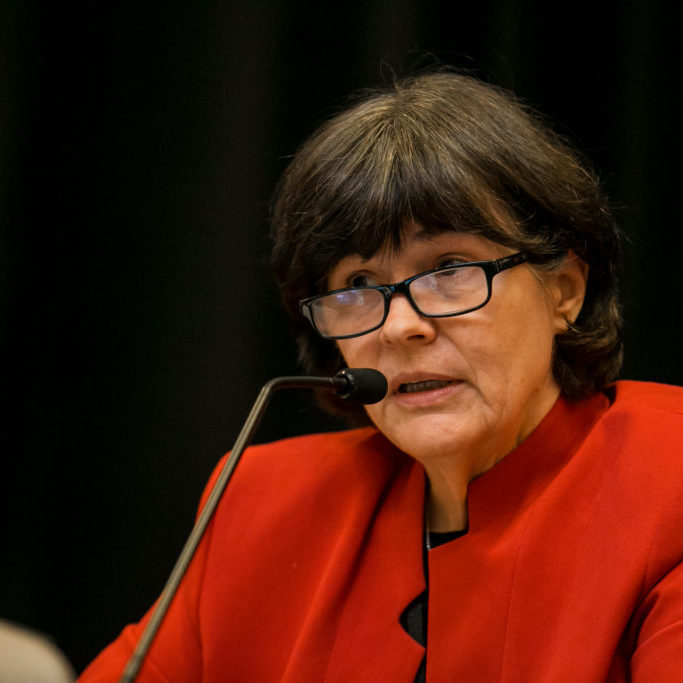
Helen Haskell
Patient Advisory Council Chair
Helen Haskell is chair of SIDM's Patient Engagement Committee and president of the nonprofit patient safety organizations Mothers Against Medical Error and Consumers Advancing Patient Safety. Since the medical error death of her young son Lewis in 2000, Helen has worked to improve healthcare safety and quality in the U.S. and abroad.

Kathryn McDonald, PhD
Principal Investigator
Kathryn McDonald is the Bloomberg Distinguished Professor of Health Systems, Quality, and Safety at the Johns Hopkins schools of Nursing and Medicine, with joint appointments in the Carey Business School and the Bloomberg School of Public Health. Her work focuses on measures and interventions to achieve evidence-based patient-centered healthcare quality and patient safety.
Susie Becken
Patient Advisory Council Member
Susie Becken is currently the Patient Advisor Co-Chair of the Kaiser Permanente Southern California Regional Patient Advisory Council and a member of the Los Angeles Medical Center Patient Advisory Council. Susie is also involved with the American Cancer Society Cancer Action Network, where she address members of Congress to gain support for cancer research funding. Full story >>
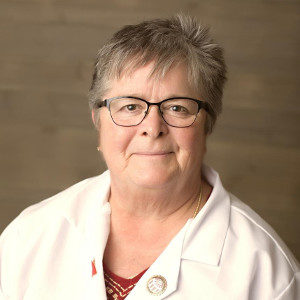
Lyn Behnke
Patient Advisory Council Member
Dr. Lyn Behnke is a well-seasoned practitioner with experience as a nurse, nurse practitioner, and educator. She began her career as a diploma graduate from Mercy School of Nursing of Detroit. After graduation, she became a critical care nurse, being one of the first CCRN certified nurses in the Flint area. As an educator, Dr. Behnke is intimately aware how important developing an accurate diagnosis is. Full story >>
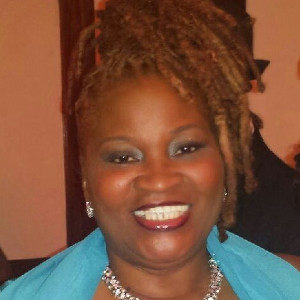
Jeanette Averette
Patient Advisory Council Member
Jeanette R. Averett, RN, MSN has been a Professional Registered Nurse for over 25 years. She has a variety of experiences in Nursing from Public Health, Behavioral Health, Community Health, School and Emergency/Critical Care. As an advocate for improved patient care and better outcomes, Jeanette is committed to the required protocols necessary to participate in this initiative.

Kimberly Rodgers
Patient Advisory Council Member
Ms. Kimberly Rodgers currently works for the City of Chicago - Department of Transportation division. Prior to that, she worked over 11 years as Business Relations Director for De Sio, Franzen & Associates, Ltd. located in Warrenville, Illinois. De Sio, Franzen & Associates, Ltd. is a certified public accounting office founded in 1981.
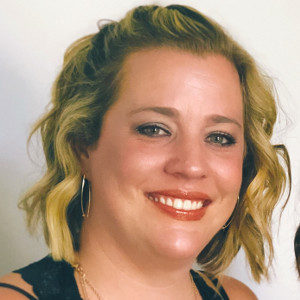
Sarah Kiehl
Patient Advisory Council Member
Sarah Kiehl is a Sepsis Alliance representative and proud mother of three daughters. Raising her family has been Sarah's priority since leaving a career in Corporate Aviation, and she has additionally used this time to further her education while pursuing a degree in Nursing. After dealing with endometriosis for many years, she contracted sepsis in March of 2016 following a routine hysterectomy. Full story >>
Read the Report
In 2018, the Society to Improve Diagnosis in Medicine (SIDM) – in partnership with principal investigator Dr. Kathy McDonald (Johns Hopkins University Schools of Nursing and Medicine, previously at Stanford University) – was awarded a grant from the Coverys Community Healthcare Foundation to investigate solutions to improve the diagnostic process. The team explored how cognitive reasoning pitfalls (mistakes in the way someone thinks or comes to a conclusion) among physicians contribute to the risk of diagnostic errors for people from historically vulnerable populations, and begin to identify potential solutions to end those disparities.
The team explored first-hand experiences of diagnostic errors, not only by individual clinician behavior but also entire health systems. The exploration included looking at a hospital or health system's internal cultures, policies, communications, methods for supporting clinicians, medical and patient education approaches, and health IT systems. Additionally, the project scope included potential diagnostic disparities before people from historically vulnerable populations even interact with the healthcare system – and before practitioner cognitive reasoning pitfalls could even occur. Therefore, while the project's ultimate goal was to investigate cognitive reasoning pitfalls as a source of diagnostic error disparities, it was structured to allow for unanticipated discoveries beyond these pitfalls.
Innovative processes, meaningful multi-stakeholder engagement, and the use of methods to specifically focus on inequities, allowed the project to produce fruits beyond those of typical research projects, extending its positive impact far into the future.
Watch the Webinar
Key Activities
Patient interviews
Clinician responses
Literature review
Data analysis
Solutions-oriented workshop
Key Outcomes
Development of clinical scenarios
Design a set of solutions to address
disparities in diagnosis
Patient education module
Clinical education module
Latest Research
Read the most recent peer-reviewed research on disparities in diagnosis.
Dx IQ Column
Get the latest in patient-centered news, including articles on how disparities impact diagnoses.
Patient Resources
SIDM offers a variety of resources to help patients participate in achieving an accurate diagnosis.
Contact
Questions? Contact us to let us know your thoughts.

